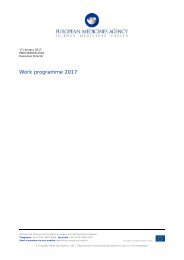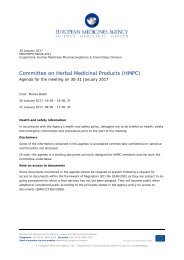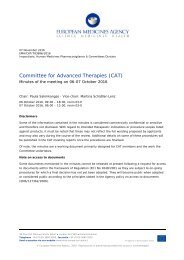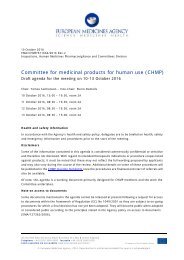Strategic Plan for Food Safety
9789241506281_eng
9789241506281_eng
- No tags were found...
You also want an ePaper? Increase the reach of your titles
YUMPU automatically turns print PDFs into web optimized ePapers that Google loves.
STRATEGIC DIRECTION 3Effective food inspection and en<strong>for</strong>cement services to administer and implement foodregulations are required, with clear structures and accountability. Well-trained and highly qualifiedfood inspectors are critical.27As support to the inspection services and <strong>for</strong> the collection of epidemiological data, laboratoryservices have a key function. These will supply the entire system with data and in<strong>for</strong>mationabout the hazards and risks associated with food and with data on foodborne diseases collectedby the national disease surveillance system. In<strong>for</strong>mation on foodborne diseases may be linkedwith food monitoring data and will lead to appropriate risk-based food control strategies andthe development of early warning systems <strong>for</strong> outbreaks and product contamination. Improvingefficiency and preparedness should also include use of modern in<strong>for</strong>mation technology <strong>for</strong>improved data collection, evaluation and sharing.Education and provision of timely in<strong>for</strong>mation and communications to food producers,consumers, food inspectors and workers along the food-chain are becoming an increasingly importantpart of food safety systems and require cross-sectoral collaboration. The provision ofguidance and tools <strong>for</strong> this aspect to assist Member States is covered under <strong>Strategic</strong> Direction 3.Although regulatory and institutional frameworks vary among countries, the international obligationsunder which they operate are the same globally, such as the World Trade Organization(WTO) Agreement on the Application of Sanitary and Phytosanitary Measures (the SPS Agreement),which uses Codex standards as international benchmark, and the IHR. Assisting MemberStates in understanding and implementing international obligations and facilitating cross-sectoralcollaborations to align their governance and frameworks can be effectively accomplished by WHO.








